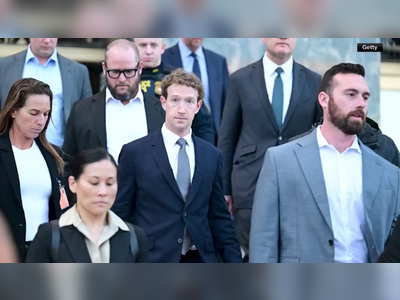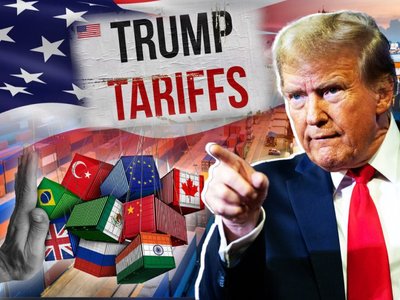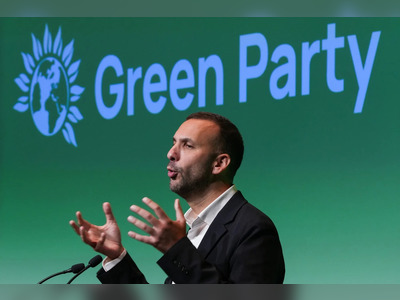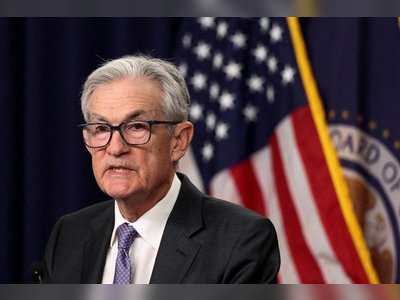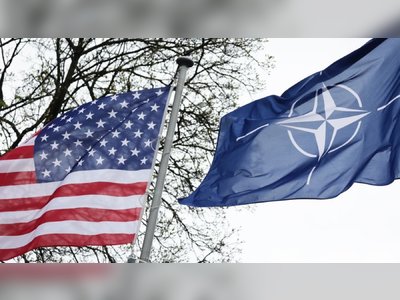
Iran Proposes Potential Nuclear Agreement with U.S. Amid Renewed Talks
Iranian Foreign Minister suggests that a new agreement is feasible if the U.S. shows goodwill as negotiations set to begin in Oman.
In a significant development regarding nuclear negotiations, Iranian Foreign Minister Abbas Araghchi indicated on Tuesday that a potential agreement with the United States could be attainable if Washington demonstrates a willingness to engage constructively.
This statement comes ahead of discussions scheduled for Saturday in Oman, aimed at addressing longstanding tensions over Iran's nuclear program.
Minister Araghchi, who will be representing Iran in these talks, emphasized that the primary objective is to lift American sanctions that have been re-imposed since 2018 when then-President Donald Trump withdrew the U.S. from the original nuclear deal, formally known as the Joint Comprehensive Plan of Action (JCPOA).
The sanctions have had a profound impact on Iran's economy.
In a surprise announcement on Monday, President Trump revealed that direct discussions with Iran are being undertaken, marking a departure from the lack of formal diplomatic relations that have existed for 45 years since the 1979 Islamic Revolution.
The Iranian government has expressed its willingness to negotiate but has firmly rejected any discussions conducted under pressure.
"These negotiations will be carried out indirectly, and we will not accept any other formats of negotiation," Araghchi reiterated, according to local media reports.
Western nations, particularly the United States, have long held concerns that Iran seeks to develop nuclear weapons capabilities, which the Iranian government consistently denies, claiming that its nuclear activities are solely for civilian purposes, notably in energy production.
In March, President Trump sent a letter to Iranian leaders inviting them to engage in negotiations regarding their nuclear program, aiming to establish a new framework for discussion following the collapse of the previous agreement post-2018. Alongside this overture, the U.S. issued threats of military action should diplomatic efforts fail, alongside renewed sanctions specifically targeting Iran's oil sector.
The announcement of ongoing discussions has been followed by Iran's reaffirmation of its stance against direct negotiations.
Minister Araghchi is expected to engage in "indirect talks" with U.S. Middle East envoy Steve Witkoff in Oman, with the latter country facilitating this diplomatic exchange.
Araghchi stated, "If the other party has the necessary and sufficient willingness, an agreement can be reached.
Ultimately, the ball is in America's court," emphasizing Iran's priority to have sanctions lifted.
In conjunction with these developments, Iran is also engaging in talks in Moscow regarding the nuclear issue with its allies, Russia and China.
The Kremlin has expressed support for the dialogue initiated by the U.S. and noted that such discussions could lead to a de-escalation of tensions surrounding Iran.
Beijing has called on the United States to demonstrate sincerity in these negotiations, reflecting broader international interest in the resolution of the nuclear issue.
The agreement initially struck in 2015 by Iran and the five permanent members of the U.N. Security Council, which included the U.S., China, Russia, France, and the U.K., along with Germany, established a framework for the lifting of certain international sanctions in exchange for curbs on Iran's nuclear capabilities.
Trump's withdrawal in 2018 led Iran to gradually distance itself from the agreement’s terms and to accelerate its nuclear program.
Historically, Iran and the United States had a close alliance during the Shah’s regime, but diplomatic relations severed during the hostage crisis in 1980. Although direct relations ceased, indirect communications have continued through Switzerland's diplomatic channels in Tehran, with Oman previously mediator in negotiations between the two nations.
This statement comes ahead of discussions scheduled for Saturday in Oman, aimed at addressing longstanding tensions over Iran's nuclear program.
Minister Araghchi, who will be representing Iran in these talks, emphasized that the primary objective is to lift American sanctions that have been re-imposed since 2018 when then-President Donald Trump withdrew the U.S. from the original nuclear deal, formally known as the Joint Comprehensive Plan of Action (JCPOA).
The sanctions have had a profound impact on Iran's economy.
In a surprise announcement on Monday, President Trump revealed that direct discussions with Iran are being undertaken, marking a departure from the lack of formal diplomatic relations that have existed for 45 years since the 1979 Islamic Revolution.
The Iranian government has expressed its willingness to negotiate but has firmly rejected any discussions conducted under pressure.
"These negotiations will be carried out indirectly, and we will not accept any other formats of negotiation," Araghchi reiterated, according to local media reports.
Western nations, particularly the United States, have long held concerns that Iran seeks to develop nuclear weapons capabilities, which the Iranian government consistently denies, claiming that its nuclear activities are solely for civilian purposes, notably in energy production.
In March, President Trump sent a letter to Iranian leaders inviting them to engage in negotiations regarding their nuclear program, aiming to establish a new framework for discussion following the collapse of the previous agreement post-2018. Alongside this overture, the U.S. issued threats of military action should diplomatic efforts fail, alongside renewed sanctions specifically targeting Iran's oil sector.
The announcement of ongoing discussions has been followed by Iran's reaffirmation of its stance against direct negotiations.
Minister Araghchi is expected to engage in "indirect talks" with U.S. Middle East envoy Steve Witkoff in Oman, with the latter country facilitating this diplomatic exchange.
Araghchi stated, "If the other party has the necessary and sufficient willingness, an agreement can be reached.
Ultimately, the ball is in America's court," emphasizing Iran's priority to have sanctions lifted.
In conjunction with these developments, Iran is also engaging in talks in Moscow regarding the nuclear issue with its allies, Russia and China.
The Kremlin has expressed support for the dialogue initiated by the U.S. and noted that such discussions could lead to a de-escalation of tensions surrounding Iran.
Beijing has called on the United States to demonstrate sincerity in these negotiations, reflecting broader international interest in the resolution of the nuclear issue.
The agreement initially struck in 2015 by Iran and the five permanent members of the U.N. Security Council, which included the U.S., China, Russia, France, and the U.K., along with Germany, established a framework for the lifting of certain international sanctions in exchange for curbs on Iran's nuclear capabilities.
Trump's withdrawal in 2018 led Iran to gradually distance itself from the agreement’s terms and to accelerate its nuclear program.
Historically, Iran and the United States had a close alliance during the Shah’s regime, but diplomatic relations severed during the hostage crisis in 1980. Although direct relations ceased, indirect communications have continued through Switzerland's diplomatic channels in Tehran, with Oman previously mediator in negotiations between the two nations.
